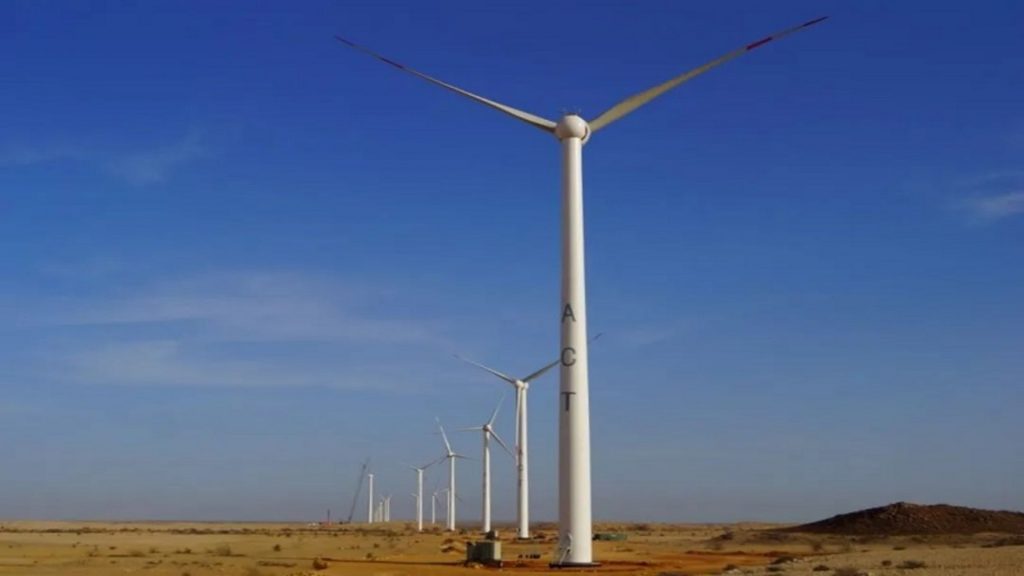A parliamentary panel and federal ministers including Energy Minister Khurram Dastgir Khan are pushing for the implementation of about 680MW of 13 solar and wind power projects of category-III whose tariffs had been approved by the National Electric Power Regulatory Authority (Nepra) in 2017-18 but not allowed to start work since then.
In three separate presentations to the prime minister, Mr Dastgir, Minister for Human Rights Riaz Hussain Pirzada and Chairman of the Senate Standing Committee on IT and Telecom Kauda Babar said these projects were given all approvals including tariffs in a range of 3.2 to 3.7 cents per kWh in 2020 but were not allowed to proceed owing to changing government policies.
They argued that since a reference tariff approved by Nepra for a government-sponsored solar power block of 600MW at Muzaffargarh in Punjab was also in the same range and yet facing bidding and financial challenges, the private sector sponsors of 13 old projects in Sindh, Khyber Pakhtunkhwa and Balochistan should be allowed to set up their plants to ensure cheaper and clean energy to the consumers.
They have complained that investments of over $600 million appeared to be facing bureaucratic resistance. Mr Dastgir wrote to the prime minister “Approval of category-III projects … will be a swift jump towards renewable energy”.
13 renewable ventures of 680MW awaiting go-ahead since 2020
He added that a draft summary shared with the Prime Minister’s Office in October last year had proposed a way forward for approval from the Cabinet Committee on Energy (CCoE) to “allow genuinely qualified and capable projects to proceed apace, which will make it feasible for the prime minister to start laying their foundation stones before end of the current fiscal year”. The minister complained that ‘no comments and feed have been forthcoming’.
As a member of a committee of ministers on category-III stalled projects constituted by the prime minister in January this year, Minister for Human Rights Pirzada complained that the said committee had met only thrice in more than three months where the chief executive officer of Alternative Energy Development BoardAEDB/Private Power & Infrastructure Board (PPIB) had been unable to make any viable suggestions and was rather “dragging his foot in typical bureaucratic style”.
The cat-III projects, said Mr Pirzada, also included 680MW of 13 advanced-stage wind and solar projects, having completed all requisite milestones of letters of support (LOSs) as per the Alternative Energy Policy of 2006 and were awarded Nepra tariff in the range of 3.2 to 3.85 cents per unit, which is “lowest in the history of Pakistan” and should be allowed to move forward.
He asked the prime minister not to allow his vision of collaborations with Turkey, China and other countries for investments in renewable energy projects to “fall victim in the hands of irresolute, myopic and indolent bureaucracy” which may seriously jeopardise Pakistan’s energy security in the coming years. This would be happening when China and India would be adding 500,000MW of renewable energy by 2030 but Pakistan would be standing at a pathetic 1,800MW of wind and 500MW of solar grid power in operations.
Mr Pirzada said the chief executive of AEDB/PPIB had mentioned bidding as a way forward but failed to provide any concrete timeline for bidding to the committee and it appeared it will take months before even the request for proposals for bidding could be advertised.
In a letter to the prime minister, Mr Pirzada said Commerce Minister Naveed Qamar, another member of the committee, had also expressed his displeasure over the irresponsible attitude of the AEDB chief for providing incorrect information about 13 advanced stage projects.
The minister alleged that bidding for these projects had not been arranged over the past five years while public pressure was immense on the government for cheap wind and solar projects. He quoted the Nepra chairman as telling the committee all 13 wind and solar projects’ approved tariffs ranged between 3.2 to 3.7 cents per unit, which were the lowest in the history of Pakistan.





